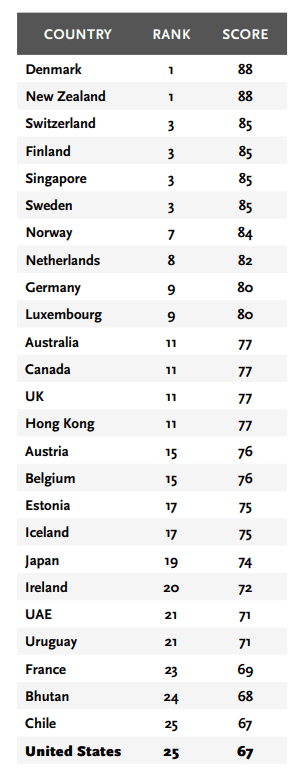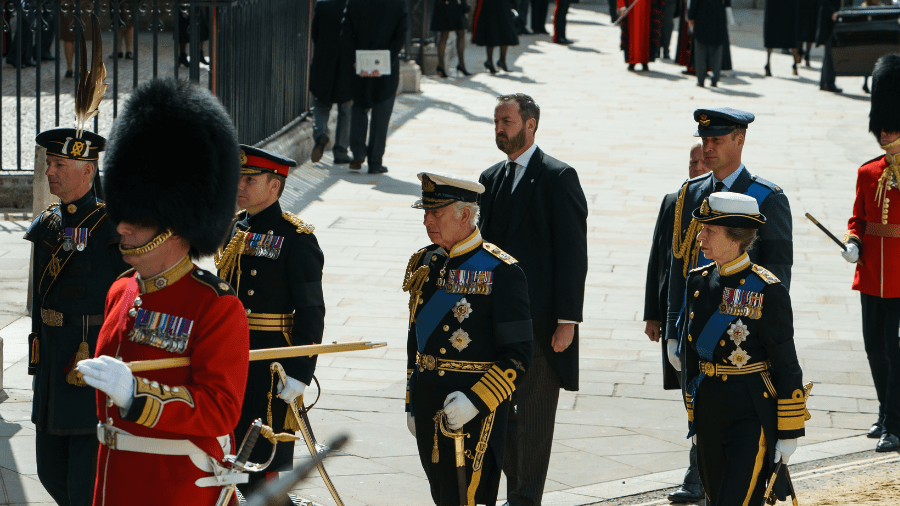By F. H. Buckley, December 21, 2022
“There is a natural inclination to kingly government,” said Benjamin Franklin at the 1787 Convention that produced the American Constitution, and this was evidenced by the extraordinary outpouring of grief at the Queen’s funeral. The drawn-out ceremonies provided the illusion that she was still with us, so much so that I was quite unprepared for the final moments, when the crown, orb and scepter were removed from casket. How alone one felt when it descended into the crypt.
She was a constant presence for most of one’s life. Like most Canadians I caught a glimpse of her on one of her many Royal Tours of Canada. As a child I visited a Royal Canadian Navy corvette when she was in Esquimalt and talked to a young naval officer who told me with great pride that he was her equerry. Am I the only person who can remember folding up the dollar bill to see the devil in the Queen’s hair?
She had a great affection for Canada, the senior Dominion and the country that provided the model for the accession to independence in the Commonwealth. It was evidently her wish that the RCMP lead the funeral procession, something every Canadian must have found moving, even those who as kids had occasion to worry whether the Mounties would discover the case of 24 in the trunk.
She taught us the importance of loyalty to our institutions and the need to keep one’s sense of humor. In the end, her last lesson was on the necessity of accepting the fact of death for us all.
Canada was never anything other than a monarchy. Queen Elizabeth wasn’t even our longest serving monarch. That would be Louis XIV. When we became a country, at Confederation, Sir John A. Macdonald wanted the new country to be styled the Kingdom of Canada, but gave the choice of appellation to Queen Victoria, whose ministers preferred to designate it as the Dominion of Canada, lest the Americans be offended by a monarchy next door. At a private audience, Macdonald had a private audience with Queen Victoria, whom he told that he wished “to declare in the most solemn and emphatic manner our resolve to be under the Sovereignty of Your Majesty and your family forever.”
One of the greatest of political con jobs is the notion that republics are freer than monarchies.
In the Heritage Foundation’s 2022 Index of Economic Freedom, the United States ranks 25th in the world and seven of the countries above it are monarchies. The countries to which the United States exported its republican constitution are significantly less free than those with a constitutional monarch.
The same can also be said about corruption. As I’ve noted in my book The Once and Future King, presidential regimes are significantly more corrupt than parliamentary ones. Transparency International’s Corruption Perception Index for 2020 shows that, leaving Hong Kong and the United Arabs Emirates out of the mix, the United States comes in last – and every other country ahead of the US (save Chile and France) has a parliamentary government (see Table 1).
Table 1: From Transparency International’s Corruption Perceptions Index 2020

That’s not to deny that America is one of the freest countries in the world. It’s simply to assert that it wasn’t republicanism that made the difference. What makes America exceptional is that for more than 200 years it has remained free in spite of its constitution.
Franklin was right. There is a popular demand for kingly rule, and republics tend to make a king of their presidents. The place of a president in America is wrapped in so much glitz and dignity, compared to a prime minister, that the United States feels much less like a democracy than Canada. What Canada’s Founders had discovered, even before Walter Bagehot, was Jack Spratt’s Law in which real power and ceremony, lean and fat, are cleaved off from each other in a constitutional monarchy. Canadians can satisfy their desire for the dignity of monarchy without running the danger that this might lead to one-man rule. King Charles isn’t going to audit us.
I rather think that Canadians have hit on the ideal system – a constitutional monarchy in which for most of the time the king is 3000 miles away. We can laugh at out prime ministers without committing lèse majeste, and we don’t have to pay attention to the Court Circular. Nor are we exposed to royals who ride bicycles, like the Scandinavian princelings. We get a dollop of ceremony, but it’s not stuffed down our throats, and we avoid the faux monarchism of the American adulation of Harry and Meghan. It works for us and, so long as we maintain it, prevents us from becoming Americans. The republicans amongst us are closet annexationists.
The monarchy even strengthens Canada’s democratic institutions, a point Queen Elizabeth made in a 1964 Royal Tour. “The role of a constitutional monarch is to personify the democratic state,” she said, “to sanction legitimate authority, to ensure the legality of its methods, and to guarantee the execution of the popular will.” I’ll take that over the US Supreme Court.
F.H. Buckley is a Professor at Scalia Law School and the author of Progressive Conservatism (Encounter Books, 2022).






